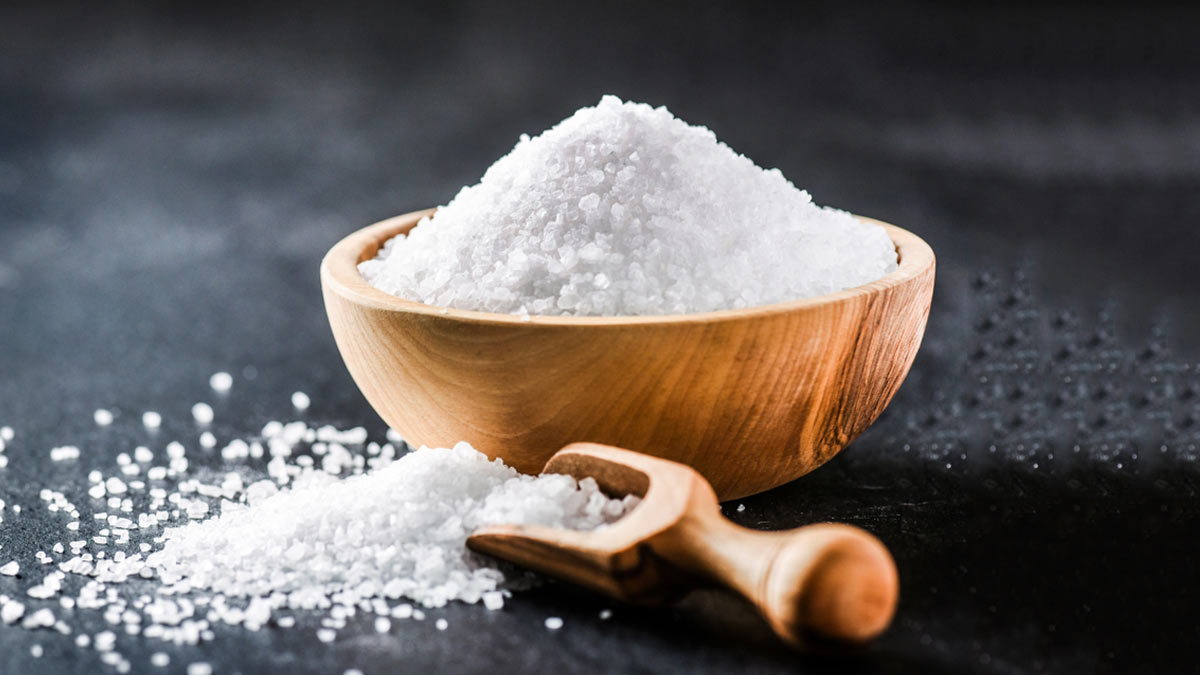
Harindra singh Dainik india news, Lucknow: Excessive consumption of sodium chloride, commonly known as table salt, has been identified as a major contributor to several serious health conditions, leading to a significant number of deaths worldwide each year. Understanding the adverse effects of high sodium intake and the mechanisms through which it harms the body is crucial for both public health initiatives and individual dietary choices.
Health Impacts of High Sodium Intake
1.Cardiovascular Diseases (CVD):
The primary health concern associated with high sodium intake is its strong link to cardiovascular diseases. Sodium contributes to elevated blood pressure, or hypertension, which is a major risk factor for heart attacks and strokes. The World Health Organization (WHO) estimates that around 1.89 million deaths per year are associated with excessive sodium consumption ❞(https://www.who.int/news-room/fact-sheets/detail/salt-reduction). Studies have consistently shown that increased sodium intake leads to higher blood pressure levels. For example, research from the Harvard T.H. Chan School of Public Health demonstrated that each 1,000 mg increase in daily sodium intake raises the risk of cardiovascular disease by 18% ❞(https://www.hsph.harvard.edu/news/press-releases/reducing-sodium-and-increasing-potassium-may-lower-risk-of-cardiovascular-disease/).
Gastric Cancer:
High sodium intake is also linked to an increased risk of gastric cancer. Sodium can damage the lining of the stomach and enhance the carcinogenic effects of Helicobacter pylori, a bacterium associated with stomach ulcers and cancer. This risk underscores the importance of moderating sodium intake to prevent gastrointestinal diseases.
Kidney Disease:
Excessive sodium intake can lead to kidney damage by overloading the kidneys’ filtration capacity, resulting in chronic kidney disease. High sodium levels cause the kidneys to work harder to expel excess sodium, which can eventually lead to kidney dysfunction and failure.
Obesity and Metabolic Syndrome:
Diets high in sodium are often associated with the consumption of processed and high-calorie foods, contributing to obesity and metabolic syndrome. These conditions further increase the risk of diabetes, cardiovascular diseases, and other health issues. The interplay between sodium intake and these diseases creates a cycle of health complications that can be difficult to manage without dietary intervention ❞(https://health.clevelandclinic.org/how-does-salt-affect-heart-health).
Mechanisms of Harm:
Sodium affects the body in several harmful ways:
Blood Pressure Regulation:
Sodium plays a critical role in maintaining fluid balance and blood pressure. Excessive sodium intake leads to water retention, increasing the volume of blood and, consequently, blood pressure. This chronic elevation in blood pressure strains the cardiovascular system and can lead to heart disease and stroke.
Inflammation and Oxidative Stress:
High sodium levels can induce inflammatory responses and oxidative stress within the body. These conditions are known to contribute to the development and progression of atherosclerosis, where arteries become clogged with fatty deposits, increasing the risk of heart attack and stroke.
Sources of Excessive Sodium
The majority of dietary sodium comes not from salt added during cooking or at the table but from processed and packaged foods. Common sources include bread, canned soups, snack foods, processed meats, and condiments. This hidden sodium makes it challenging for individuals to monitor and control their intake effectively.
Recommendations for Sodium Reduction
1. Reading Labels:
Consumers should read nutrition labels carefully to identify and avoid high-sodium products. Many processed foods contain more sodium than one might expect.
2. Choosing Fresh Foods:
Opting for fresh fruits, vegetables, and lean meats instead of processed foods can significantly reduce sodium intake.
3. Using Alternative
Seasonings:
Replacing salt with herbs, spices, and citrus can enhance flavor without the adverse health effects associated with sodium.
4. Public Health Policies:
Governments and health organizations should promote public health strategies that encourage sodium reduction. This includes food reformulation, clear labeling, and public awareness campaigns ❞(https://www.who.int/news-room/fact-sheets/detail/salt-reduction) ❞(https://health.clevelandclinic.org/how-does-salt-affect-heart-health).
Conclusion:
Excessive sodium chloride intake poses a serious health risk, contributing to cardiovascular diseases, gastric cancer, kidney disease, and obesity. By understanding the sources and effects of high sodium consumption, individuals can make informed dietary choices to improve their health. Public health policies that promote reduced sodium intake are essential to mitigate these risks and save lives on a global scale. Reducing sodium intake is not only beneficial for individual health but also represents one of the most cost-effective public health measures available today ❞(https://www.who.int/news-room/fact-sheets/detail/salt-reduction) ❞(https://www.hsph.harvard.edu/news/press-releases/reducing-sodium-and-increasing-potassium-may-lower-risk-of-cardiovascular-disease/).
